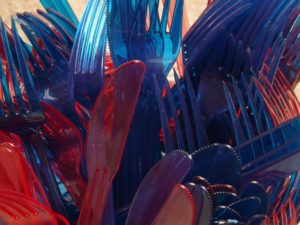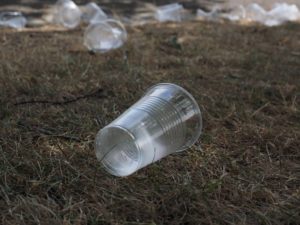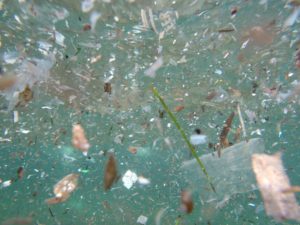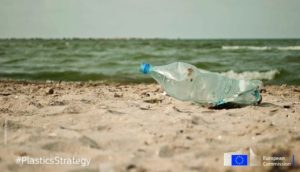‘Plastic poisons our bodies and pollutes the environment.’
Plastic contaminates the entire planet from the summit of Mount Everest to the deepest oceans – where plastic litter from takeaway food and drink dominate – and microplastics have been found in people’s blood, organs, and breastmilk and have crossed the placenta. Plastic production has soared some 30-fold since it became widespread in the 1960s.

Global plastic pollution could be slashed by 80% by 2040, according to a report from the UN Environment Programme (UNEP). The first step is to eliminate unnecessary plastic, such as excessive packaging. The next steps are to increase the reuse of plastics – such as refillable bottles – booster recycling and replace plastics with greener alternatives.
Such a shift would mean plastic pollution would drop from the current production of 450 million tons a year to about 40 million tons in 2040, reducing the damage to health, the climate, and the environment.

Europeans produce – on average – 35 kg of plastic packaging waste per year. Packaging is responsible for 40% of all plastic in the EU and plastic packing waste is expected to increase.
The European Commission indicates that the 10 single-use plastic articles most often found on European beaches represent 70% of all marine litter. Reuse systems could reduce plastic pollution by 30% by 2040.

Portugal is well below the European average with plastic waste recycling and most of the plastic ends up out of sight. Buried, burned or exported – in particular to Spain, where most plastic waste went last year.
Greenpeace warns that recycling plastic can make it more toxic – as breaking down plastics scatters microplastics and toxic chemicals in the environment – and should not be considered a solution to the plastic crisis.

‘Simply put, plastic poisons the circular economy and our bodies and pollutes air, water, and food, says Therese Karlsson, a science adviser with the International Pollutants Elimination Network (IPEN). Real solutions to the crisis will require global control of over 3000 potentially harmful chemicals in plastics and a significant reduction in plastic production.
Representatives of 175 countries recently met at the UN headquarters in Paris for a second stage of negotiations to come to an agreement to end plastic pollution in the world. Just over a year ago, in Kenya, a principle of agreement was reached with the ambition to develop – by the end of 2024 – a legally binding treaty under the aegis of the UN.

The main objective will be to reduce the production of new plastics and ban disposable plastics as soon as possible. If successful, it could join the rescue of the ozone layer as a landmark success in environmental diplomacy.
Enjoy the week Boa semana (pic Público/Sapo)












 A draft legislation thereupon was submitted in July 2017 and discussed in Parliament early this year. Heloísa Apolónia – MP of the Ecological and Green Party (PEV) – explains ‘our proposal is to ban the use of plastic disposables in restaurants and bars and to look for biodegradable substitutes within 3 years.’
A draft legislation thereupon was submitted in July 2017 and discussed in Parliament early this year. Heloísa Apolónia – MP of the Ecological and Green Party (PEV) – explains ‘our proposal is to ban the use of plastic disposables in restaurants and bars and to look for biodegradable substitutes within 3 years.’ António Fonseca, the president of the Association of Bars in the Historic Center of Porto (ABZHP) – that encourages the legalization of the use of alcohol in public places – believes that the plans are irresponsible in the light of the danger glassware can cause in nightlife.
António Fonseca, the president of the Association of Bars in the Historic Center of Porto (ABZHP) – that encourages the legalization of the use of alcohol in public places – believes that the plans are irresponsible in the light of the danger glassware can cause in nightlife.
